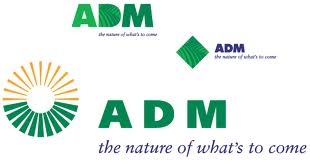Investment Highlights
- Strong long-term growth driver as demand for agricultural products increases from a rising global population and emerging market growth.
- Operationally, Archer-Daniels is relatively risky with a lot of uncertainty in cash flows
- Shares currently trade 45% above their longer-term price-earnings multiple and expectations for sales are flat over this year and next
Archer-Daniels Midland (ADM) is a $28.9 billion processor and merchandiser of agricultural commodities and products. Oilseeds processing accounted for 39% of 2013 revenue, followed by corn processing (15%) and agricultural services (46%) which includes storage and transportation. The company also owns a 16.4% equity interest in Wilmar International, an Asian agribusiness group. Strong crop production this year is driving a rebound in the shares though the company’s services segment remains relatively weak.
The company failed to sell its cocoa business, announced in May after more than a year of negotiations with potential buyers. Food and Agricultural provider Cargill had been in late-stage talks with the company but could not agree on valuation. Management now says that it will look to divest just its chocolate operations but no word has been released on how negotiations have been going.

Archer-Daniels may be getting into a bidding war for German flavors firm Wild, announcing its interest in the company in May. The bid, which would likely be over $2 billion, comes as the company has been seeking to expand its overseas presence. A $2.6 billion bid for grain handler GranCorp was rejected by the Australian government in November.
An increased exposure to Asian growth, through its Wilmar stake, will help the company take advantage of global demand in agriculture but it may run into regulatory hurdles as it tries to expand. The long-term picture for agribusiness is positive and should help the company smooth its operational performance.
Fundamentals
Sales have grown relatively well over the last decade but poor winter weather hit sales in the services segment over the last year. Sales dropped 0.8% in 2013 and have grown at a 3.6% pace over the last three years.
Despite the drop in sales, the company managed to eke out growth in operating income by paying less for its raw materials. Cost of goods sold fell 1.2% though a 5.8% increase in operating expenses limited the company’s operating margin to just 2.1% over the year. While the company’s operating margin has increased from 1.8% in 2012, it is still about half of what it was before 2010. Growth in operating income well below the rate of growth in sales over the ten-year period is a little disturbing and may speak to a problem with cost management.
The company has a relatively healthy balance sheet with more than enough resources to cover its current liabilities and debt. Archer-Daniels had $1.5 billion in cash at the end of the last quarter and has paid off $2.9 billion in debt over the last three years.
Cash flow from operations is extremely volatile for a large and established company. Cash booked from operations has been negative in two of the last ten years (2008 and 2011) and nearly doubled last year on changes to inventory and working capital. Free cash flow has been just as volatile and has been negative in three of the last ten years. While some volatility is to be expected in a company with sales exposed to agricultural markets, it is quite a bit higher than other Dividend Aristocrats.
Dividends and Growth
Archer-Daniels has paid a dividend since 1927 and has increased the payment every year of the past 39 years, firmly making the company a Dividend Aristocrat. Shares pay a 2.2% yield, right at the five-year average, though the company has increased the amount of income paid out as dividends to 43% from its average of 34% over the last five years. The fact that management has had to increase the payout ratio significantly to maintain the dividend yield does not bode well for future dividend growth.
The dividend per-share amount has increased by 11.6% over the last three years, though the five-year average of 9.8% is probably a more sustainable rate. While Archer-Daniels has been a solid dividend payer, management has not shown the same commitment to its buyback program. The company bought back $101 million in shares last year, just a fifth of the amount bought in 2012.
Earnings are expected to grow reasonably well over this year and next but the company will need to grow sales if it is to continue its pace of dividend increases.
Valuation
Shares of Archer-Daniels Midland are currently trading for 21.7 times earnings over the last year, below the industry average of 24.1 times but well above the company’s own five-year average of 15.0 times earnings.
Sales are expected 0.8% lower this year to $89.04 billion and just 0.6% higher next year. On this modest sales picture, earnings are expected 30% higher this year and 11% higher in 2015. Stronger agricultural production in the United States could help boost revenue but the company will need to improve its operational performance if it wants to meet earnings expectations.
With the shares already rebounding considerably over the last year and looking relatively expensive against historical price-earnings multiples, I would be cautious about buying Archer-Daniels Midland at this point. Neither the dividend yield nor the buyback program is really impressive from a cash return perspective and operationally the company is one of the more volatile among Dividend Aristocrats. The company has good long-term drivers in its favor but investors may want to wait for a better time to buy.
